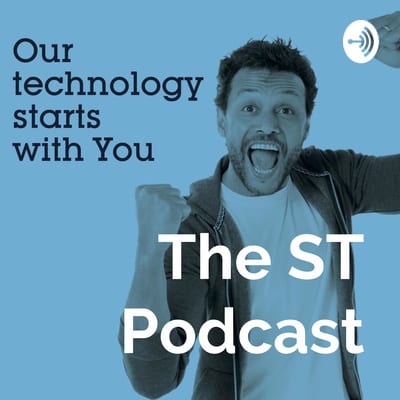For a demonstrable example of how open source can serve a business, let’s look at DH electronics, a System-on-Module (SoM) maker based in Germany. The company, a member of the ST Partner Program, offers the DHCOR STM32MP15 and the DHCOR STM32MP13. The solderable SoMs come with up to 1 GB of DDR3 and uses ST’s power management companion device, the STPMIC1. DH electronics also makes the DHCOM STM32MP15, an SODIMM-200 module that includes Bluetooth, Wi-Fi, and a second Ethernet controller.
It is fair to ask if open source is a viable or even lucrative business model. Teams should consider it more often instead of just assuming that they must implement walled gardens or make everything proprietary. There’s undoubtedly a case for patents and private IPs. However, ST’s commitment to mainlining STM32 MPU drivers to the Linux kernel, offering a Linux distribution named OpenSTLinux, or opening the source code for most of our software packages, teaches that the benefits of mainlining a board support package and opening schematics like DH electronics does are too often underrated.
DH electronics or what an open strategy looks like
The SoMs behind the development boards

What distinguishes DH electronics from the competition is its development boards. The DHCOR STM32MP15 is in the Avenger96, a PCB with a Wi-Fi module and an HDMI 1.4 port. Additionally, the DHCOM STM32MP15 powers the DHCON, a complete control unit with a screen and touch buttons. The latter’s modular architecture also enables customers to add expansions, such as a sub-gigahertz communication system. The idea is to enable the creation of a single-board computer, similar to what some enthusiasts experience, like a Raspberry Pi, but with devices that would fit in an industrial environment. Hence, all boards are guaranteed for a long-term availability of 10 years or more and industrial markets.
For teams looking for the most cost-effective way to start their project, DH electronics came up with the DHCOR STM32MP13 and the DHSBC STM32MP13, a single board computer based on the DHCOR STM32MP13. In a nutshell, they take the ST MPU and put it in an industrial-grade production-ready system. The DHCOR STM32MP13 thus acts as a gateway for a cost-effective microprocessor, especially for new developers coming from the microcontroller world. Moreover, since all DHCOR boards come pre-tinned, soldering a module only requires solder paste, making the process vastly simpler, faster, and cheaper.
The philosophy behind the development boards and SoMs
All these development boards highlight the open philosophy that drives DH electronics. Indeed, the schematics of the evaluation boards are open source, and the company upstreams its Linux drivers. To better understand their operation, the ST Blog sat down DH electronics. As the company shared,
“Very early on, [DH electronics] decided to be as transparent and open as possible. We believe in the idea that anyone could come and check out what we’re doing and we would still have a competitive edge. Open source is not only code sharing but a willingness to bring a certain know-how to a community and make a business around it.”

The new DHCOR STM32MP13 also shows how straightforward it was for the company to move to the ST MPU after its first board based on the STM32MP15. They shared how the experience gained with the first ST SoM and our ST documentation helped them to release a new board rapidly to target new customers looking for a more cost-effective solution. DH electronics even shared how they are also working on an STM32MP2 SoM. There are no release dates at the moment, but we’ll update this blog post when we have more information.
DH electronics then explained how this approach enabled them to get new customers. Prospective clients choose to adopt their STM32MP1 SoM because they don’t have to spend time and human resources on the platform itself. The open-source philosophy and mainlined Linux BSP mean DH electronics can more easily offer a wide range of services. As a result, many customers focus on their application instead of worrying about the operating system, over-the-air update mechanisms, and more. Additionally, the open-source direction allows DH electronics to provide long-term support for its products. Companies thus have the assurance that their STM32MP1 system will still receive updates a decade or more after their release.
DH electronics or how surmounting challenges paid off

Talking to DH electronics was enlightening because the team shared their experience upstreaming their drivers. The company explained that the process represents a significant investment. Mainlining your board support package and adopting the open-source model is not trivial. For instance, DH electronics has been partnering with Denx, a software engineering company that got its upstream process started before moving some operations in-house. As they told us,
“Upstreaming your code is complex because there’s a lot to learn before you can bring something meaningful to the community. Getting approvals takes time, especially if companies aren’t clear about what the community expects. That’s why we enjoyed working with a partner to get started. The good news is that things get easier as the process becomes familiar.

While investments are substantial, DH electronics lauded the returns. This approach is attracting customers and developing strong relationships with companies like ST that are also upstreaming their drivers. In this particular instance, the work ST put in its OpenSTLinux distribution also contributed to DH’s initiative. Upstreaming our code and promoting the importance of the Linux community encouraged DH electronics to jump on the bandwagon. And now, their experience has been so successful that DH electronics itself is asking its other partners to upstream their code and join the open community. Being able to benefit from one another means it is easier to keep devices up to date and provide a better product.




